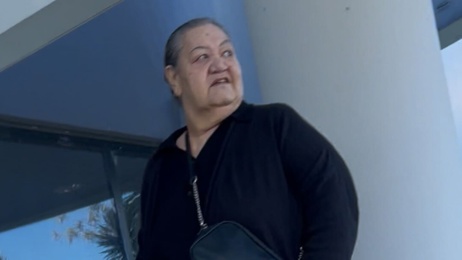
Health bosses are investigating how the response to mental health emergencies can be adapted as the Police Commissioner indicates he wants to reduce the time spent by officers on such callouts within the year.
Senior health officials told MPs on the Health Select Committee this morning that representatives from the health system and police were discussing how the response model for mental health emergencies could be adapted as police look likely to scale back their involvement to prioritise more fundamental policing activities.
The shift aligned with the new Government’s intention to see a return to “core policing with a back-to-basics approach”, as outlined in Police Minister Mark Mitchell’s letter of expectations to Police Commissioner Andrew Coster, which included the aim to relieve police of responsibilities more appropriately taken on by other agencies.
It comes as Mitchell says he will prioritise upgrading the country’s 111 emergency call system following reporting indicating the system was so old, slow and fragmented that it was causing deaths and injuries.
In Mitchell’s recent briefing as the incoming Police Minister, he was advised mental health callouts had increased by 152 per cent between 2013-2023. Just 2-4 per cent of mental health callouts resulted in a criminal offence.
A similar demand increase had been observed in family harm callouts, jumping 81 per cent in the same decade. No criminal offence was recorded in more than half of family harm investigations.
The briefing referenced a five-year plan to transition police away from leading responses to incidents of mental distress and replace it with a multi-agency approach.
Robyn Shearer, Ministry of Health Deputy Director-General with a focus on mental health, informed MPs that police had told health officials the demand of mental health callouts was a “pressure point”.
Shearer said police had also referenced moves in the United Kingdom where the Metropolitan Police last year adopted a new strategy where officers no longer attended certain callouts unless there was sufficient evidence a police presence was required, such as the risk of physical harm.
/cloudfront-ap-southeast-2.images.arcpublishing.com/nzme/FQNYUYEO3SDRJOWRJPFXERQDUY.jpg)
Robyn Shearer is a Ministry of Health Deputy Director-General with a focus on mental health. Source / NZ Doctor
Shearer said, “We haven’t gone that far in New Zealand”, and that police and health officials continued to “problem-solve together”, citing potential improvements to the national telehealth service, Whakarongorau.
“What we are trying to probably support more data in is where the calls are coming from, where the follow-up needs to be because it’s difficult when someone rings 111, clearly they’re distressed, is it a mental health issue, is it a social issue,” she posed.
“Between us and [the Ministry of Social Development] and police, we’re working together on this and we’ll be reporting back.”
Director-General of Health Dr Diana Sarfati explained how the increase in mental distress in New Zealand was also a global trend but its cause wasn’t clear.
“No one’s entirely sure what that is about but it’s probably relating to things like a sense of concern around climate change, around the pandemic and what happened. It might be something to do with social media.”
Coster, speaking to Newstalk ZB on Monday, said he wanted to limit time spent by officers on callouts where there was no immediate risk to people.
He explained how police often spent hours in hospital emergency departments waiting for a person experiencing mental distress to be assisted by a mental health professional - time he would prefer spent on being more visible publicly.
Coster said police also spent too much time on family harm callouts - a result of a policy adopted “some years” ago where police were required to attend every callout in an effort to reduce family harm.
Police Commissioner Andrew Coster wants to change what police respond to. Photo / Mark Mitchell
As a result, police were attending instances where family members were arguing over the TV remote, Coster said.
Asked how long it would take for police to move away from responding to these callouts, Coster said: “We will be moving this year on this and we’re already looking to triage differently on these kinds of issues.”
However, he acknowledged substantial work remained to establish a sufficient workforce to replace the role police had held.
This proposed change to the response model had prompted concern from Women’s Refuge chief executive Ang Jury.
“People don’t invite police around just because they feel like a visit. They invite them around because they’re scared,” she told RNZ.
She could not see any other agency that could step in and take the role of police.
“Police is the only agency in this country that actually has the power and the authority to deal with potentially dangerous situations.”
Officials describe costly, complex, inequitable health system
Sarfati gave MPs this morning an overview of the challenges faced by the health system, namely how an aging population increased healthcare demand and made health provision more difficult.
It was estimated the proportion of people aged over 65 years old would double between the 1980s and 2030, leading to more complex health needs.
Sarfati said the cost of healthcare had been “increasing rapidly over many decades”, while providing equitable outcomes for different populations had remained challenging.
“To date, eliminating those inequities has proved an elusive goal.”
/cloudfront-ap-southeast-2.images.arcpublishing.com/nzme/FEDIQUKMVKJTCYOO2NQGWKQVTQ.jpg)
Director-General of Health Dr Diana Sarfati detailed the challenges facing the health system. Photo / Sylvie Whinray
Workforce shortages continued to bite with an estimated global shortfall of about 30 million health workers by 2030.
She did point to how benefits were beginning to show from the previous Government’s health reforms where the country’s district health boards were merged to become Health New Zealand/Te Whatu Ora.
Those benefits included a more efficient flow of patients between regions and better co-ordination on workforce initiatives such as closing the gap in pay between hospital-based and general practice registrars.
Adam Pearse is a political reporter in the NZ Herald Press Gallery team, based at Parliament. He has worked for NZME since 2018, covering sport and health for the Northern Advocate in Whangārei before moving to the NZ Herald in Auckland, covering Covid-19 and crime.
Take your Radio, Podcasts and Music with you

/cloudfront-ap-southeast-2.images.arcpublishing.com/nzme/TNGW7NLMYVEWLBFJKEXFHARWFM.JPG)








